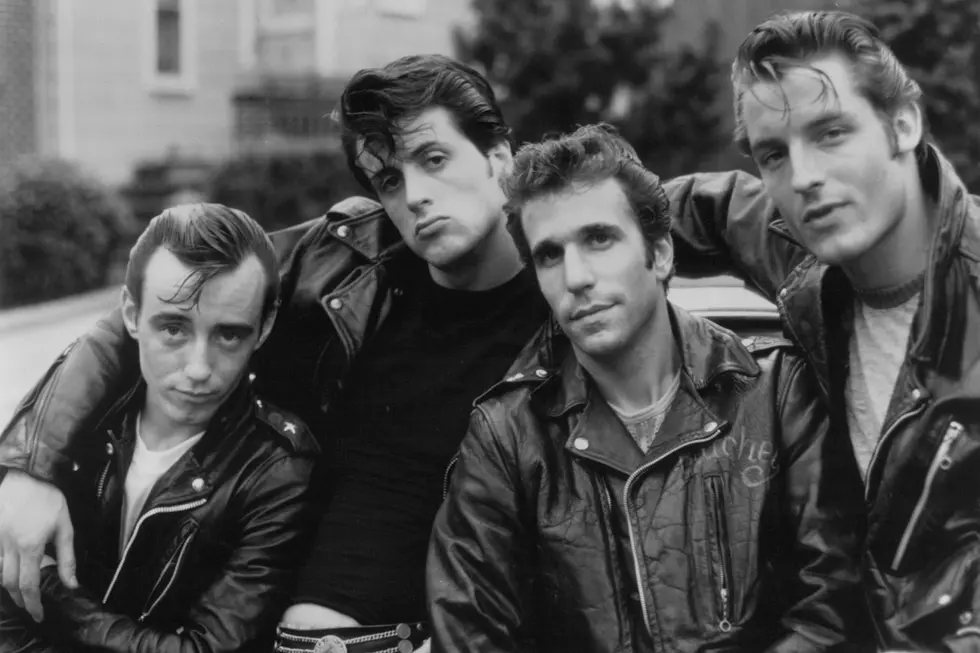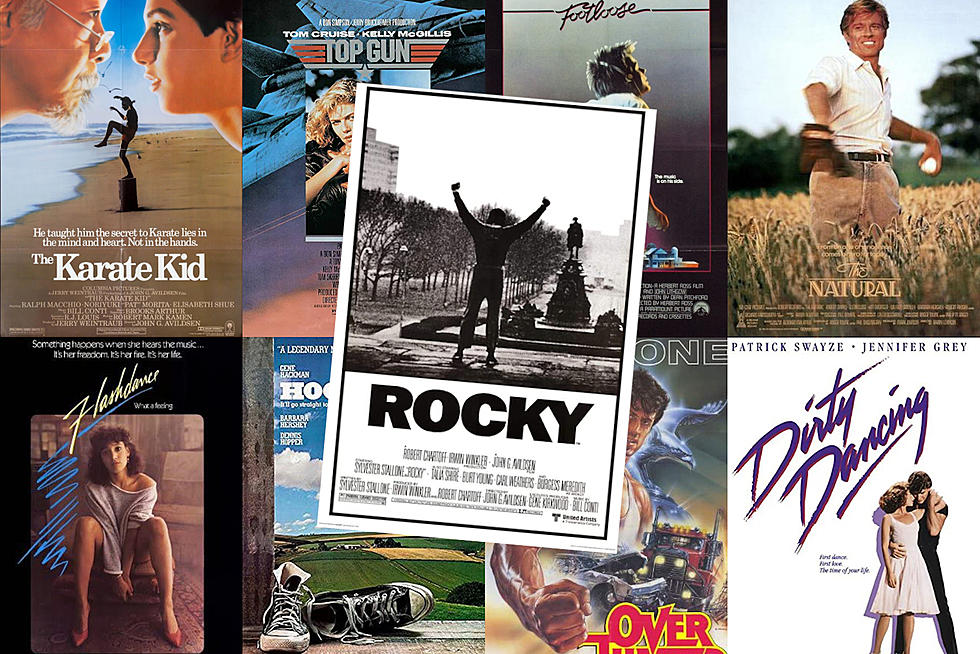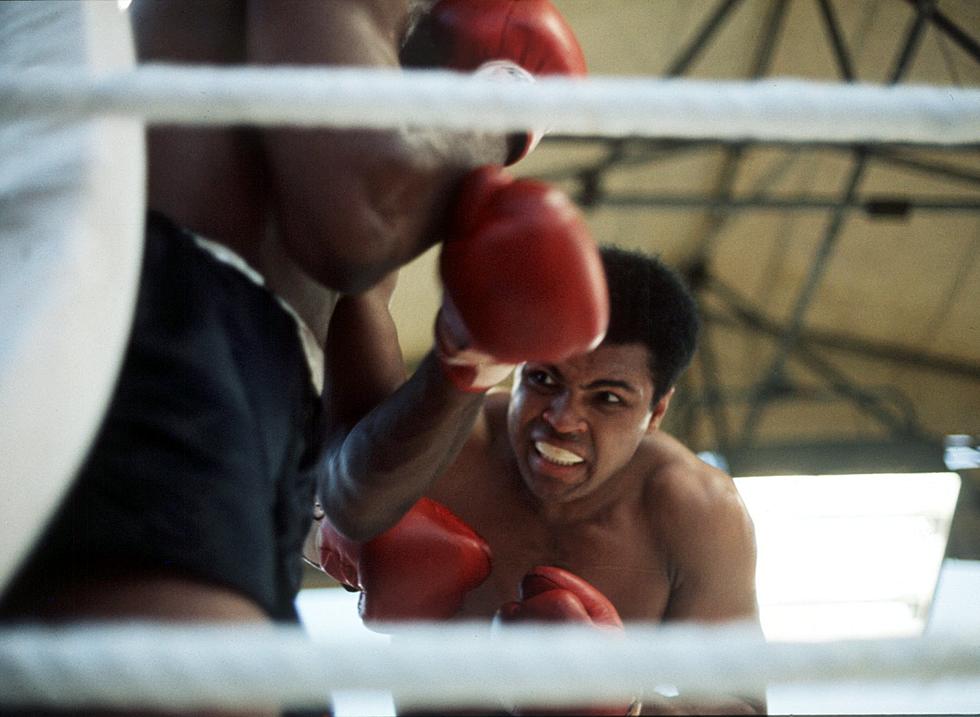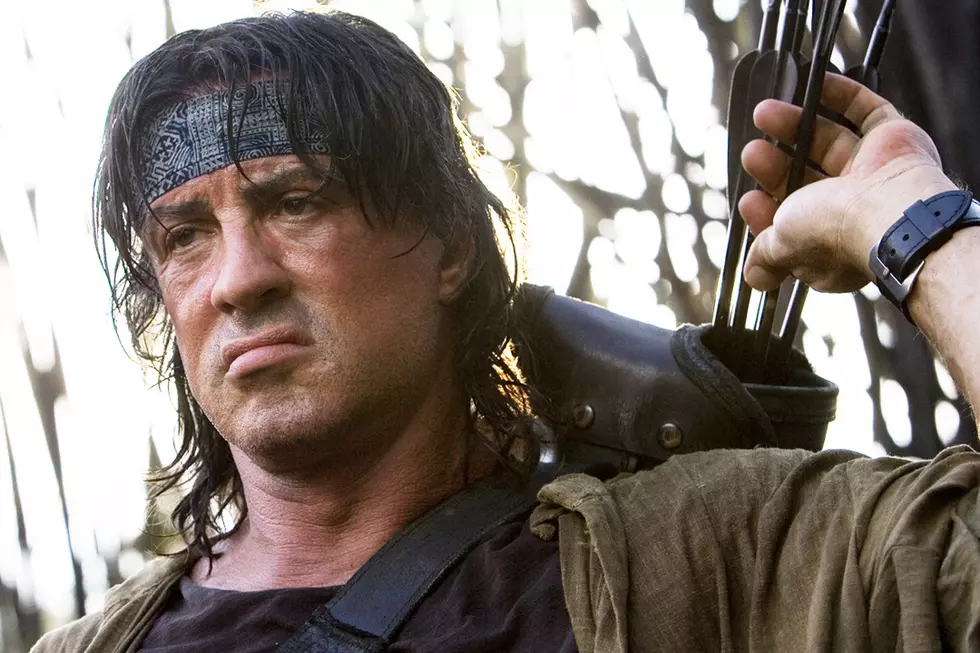
45 Years Ago: ‘The Lords of Flatbush’ Introduces Rocky and Fonzie
UCR: Movies and Culture
In the early '70s, when the U.S. was involved in a war that seemed to have no end and protests dominated daily headlines, the film industry started looking to simpler times to entertain moviegoers.
The late '50s and early '60s were an ideal era where that focus could be placed, with touchstones like unparalleled growth in the middle class, rising popularity of TV and the embracing of rock 'n' roll by teens.
The coming-of-age, California-based American Graffiti, which was directed by pre-Star Wars George Lucas, was a smash hit in 1973, and less than year later its darker and grittier low-budget counterpart, The Lords of Flatbush, landed in theaters on May 1, 1974.
The movie is most noteworthy for being the first vehicle where pre-stardom Sylvester Stallone and Henry Winkler had leading roles, with the former receiving an “additional dialogue” writing credit -- an early showcase for his screenwriting chops, which would secure him an Oscar nod in a couple years.
Set in the Flatbush neighborhood of Brooklyn circa 1958, the film tells the story of four rambunctious greaser teens who are into girls, shooting pool, fighting, motorcycles, mischief, mayhem and hanging out at the local malt shop. They wear the name of their gang, the Lord’s [sic], emblazoned across the back of their leather jackets and typically don’t take anything too seriously.
The lives of the crew begin to get real when the boorish but tender Stanley Rosiello (played by Stallone) gets his girlfriend pregnant and considers marrying her. Then the suave and slick Chico Tyrell (Perry King) faces an emotional speed bump when he falls for Jane (Susan Blakely), a newcomer to the school who doesn't fall prey to his womanizing ways. Winkler’s Butchey Weinstein battles an identity crisis, called out by the local soda jerk for dumbing himself down to fit in around the gang. Wimpy Murgalo (Paul Mace) is the only one who's truly comfortable with his role in the Lords.
Like in many independent movies, things don't exactly work out for the Flatbush crew in the end. Stanley’s lady isn’t pregnant, but since he put a down payment on a ring, he feels obligated to go through with the nuptials. Chico doesn’t get the girl. Butchey gets hit by a car and has to go to the wedding on crutches. Wimpy, well, he gets to be best man, so all is good in that respect.
Watch 'The Lords of Flatbush' Trailer
The movie was co-directed by Stephen Verona and Martin Davidson, who combined scripts they had been working on individually. They then skewed the characters toward Vernoa’s younger days, when he always had a biker jacket draped over his shoulders.
At the time, Stallone had given up on acting for the most part, deciding to focus on his painting and writing. Verona discovered him at an acting class where he was looking for actors. Even though Stallone wasn’t registered in the workshop, he got onstage and nailed the role, almost like it was made for him.
Stallone has been quite upfront that the character of Stanley laid the foundation for his construction of Rocky Balboa, a street tough on the outside who really has a heart of gold deep down. From a business standpoint, the first Rocky movie likely wouldn’t have happened if it weren’t for The Lords of Flatbush, which was the sole footage producers saw of Stallone's acting when they were deciding on whether to back the 1976 film.
Winkler became best known as Arthur “The Fonz” Fonzarelli on the long-running TV show Happy Days. A popular misconception is that the show's producers saw him in The Lords of Flatbush and decided to cast him similarly in a bit part as a hood. But Happy Days actually began airing in January 1974 and was one week away from the first season's final episode when The Lords of Flatbush came out.
Filming of The Lords of Flatbush concluded after being shot over a period of five weeks in 1972. Winkler left New York for Hollywood shortly afterward, and auditioned for the role of the Fonz long before the movie played to any audience. And while his appearance as a leather jacket-clad greaser in Flatbush had nothing to do with landing the Happy Days role, Winkler took his inspiration from Stallone’s portrayal of Stanley with him to Hollywood.
“What would Sly do here?” he remarked years later about becoming Fonzie. “When I did the audition, I just changed my voice a little bit, you know?”
The unexpected popularity of Winkler’s Happy Days character and expanded screen time helped supercharge The Lords of Flatbush at the box office, where it raked in millions off its budget of just few hundred thousand dollars.
“It was so raw and real,” Stallone said. “And we were up against, at that time, American Graffiti, which was as slick as you can get, and it was also West Coast [vs.] East Coast. People just reacted to it because there was no pretense. It was what it was -- it’s like someone took a camera and shot four losers living their life.”
The actors stayed in character during filming, taking method acting to another level, even getting into skirmishes on the streets of Brooklyn.
“It was a very satisfying movie for us to make,” said King, who would later make waves as the lead in the '80s TV show Riptide. “Shooting it was really fun, because we were the Lords of Flatbush, the four of us. We would just be the Lords the whole time.”
A significant footnote to The Lords of Flatbush involves Richard Gere who, depending who's telling the story, was supposed to play either Chico or Butchey. Winkler has been adamant over the years that he was the one who replaced the future American Gigolo star, while King claims he took over the part of Chico from him. One thing that’s clear: Gere was fired from the movie after a rift with Stallone that's never been mended.
“He would strut around in his over-sized motorcycle jacket like he was the baddest knight at the round table," Stallone said in 2006. "One day, during an improv, he grabbed me" during a simulated fight scene -- "and got a little carried away. I told him in a gentle fashion to lighten up, but he was completely in character and impossible to deal with."
Stallone then went into detail about a lunchtime altercation in the back of a car that ended when "I elbowed him in the side of the head and basically pushed him out of the car. The director had to make a choice: One of us had to go, one of us had to stay. Richard was given his walking papers, and to this day seriously dislikes me."
The Best Rock Movie From Every Year: 1955-2018
More From KYBB-FM / B102.7










